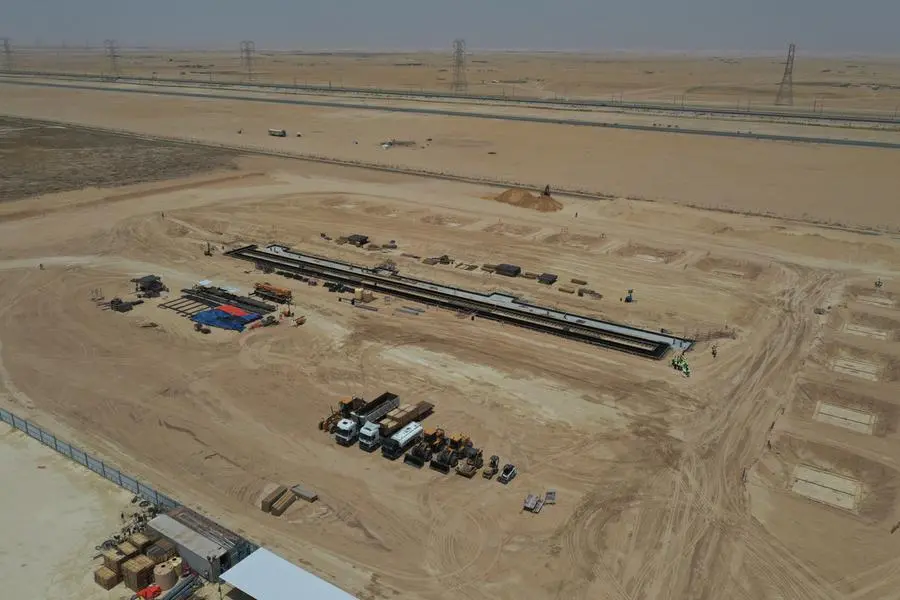PHOTO
The Gulf Electricity Interconnection Expansion Project, led by the Gulf Cooperation Council Interconnection Authority (GCCIA), involves Gulf and regional cooperation to confront the challenges and the increasing demand for electricity in all Gulf states and the Republic of Iraq.
The project would achieve great technical and economical benefits, as it would increase the capacity, efficiency, and reliability of the electrical network of GCCIA-member states, and ensure the sustainability of electrical energy at all times.
Moreover, Gulf systems will have the opportunity to benefit commercially from the available surplus in production capacity.
The State of Kuwait will be the largest beneficiary of this project, which would increase the supporting capacity of the country’s electricity network by approximately 2,500 megawatts, and thus improving the operational efficiency of the Kuwaiti electricity network.
The project will also reap benefits for the electricity network in southern Iraq, as it will be provided with an electrical capacity of 500 megawatts, which meets part of the demand for electrical energy and improves the performance and stability of the network in southern Iraq.
The GEIEP project consists of establishing a main linking station in the Al-Wafrah station in Kuwait, constructing double overhead lines to connect to the Al-Fadhili station in Saudi Arabia, then converting a double overhead line back to the Al-Zour area in Kuwait.
There will also be a construction of overhead lines from the Al-Wafrah area to the Sabah Al-Ahmad (3) and Sabah Al-Ahmad (4) stations to connect with the Kuwait network, as well as a network of overhead lines with a voltage of 400 kilovolts to Al-Faw station located in southern Iraq to connect with the Iraq network, and then with the global network.
Economical benefits
Mr. Guillaume Jahan, CEO of Vinci Energies, which is the implementing company, explained that the construction component of the Al-Wafrah station in Kuwait, and the component of the overhead transmission lines that will be extended with a voltage of 400 kilovolts, two-circuit, to connect the new station to the Kingdom of Saudi Arabia.
The Interconnection project will contribute to increasing the capacity of the electrical transmission network of the Electrical Interconnection Authority, while the extended lines connected to Iraq, with a capacity of 400 kilovolts, would improve the current connection with the State of Kuwait.
“The project is generally considered as another milestone in the plans of the Electricity Interconnection Authority, which aims to provide a flexible electrical interconnection network that guarantees energy security and economic benefits for all member states,” said Mr. Jahan.
Development goals
The project would also contribute to achieving a set of sustainable development goals, including good health, well-being, quality education, providing clean energy at affordable prices, decent work creation, and economic growth, in addition to the development of the industry in terms of innovation and infrastructure.
Last but not least, it will also provide sustainability to cities and local communities, and strengthen partnerships.
Financial cost
The project costs are estimated at approximately USD 570 million (approx KD 172.8 million), and it is expected to achieve an economic return of about 14.4%.
During March 2022, Kuwait Fund for Arab Economic Development signed a loan agreement worth KD 35 million (about USD 115 million) to contribute to the financing of the project.
This loan is the first provided by Kuwait Fund to the Electrical Interconnection Authority to strengthen the electrical interconnection system in the Gulf region and Iraq.
The Fund also intends to provide a second loan to finance this project, with conditions that would be agreed upon later. The Al-Wafrah station project is expected to be completed by December 2024.
About the Kuwait Fund for Arab Economic Development
The Kuwait Fund For Arab Economic Development is the first institution in the Middle East that took an active role in the international development efforts.
The Kuwait Fund extends Loans on concessionary term to finance development projects in the developing countries. The Fund also provides technical assistance to finance the costs of the feasibility studies of projects, as well as the training of nationals of the borrowing countries. In addition, the Fund subscribes in the capital of international and regional development institutions. Today, the Kuwait Fund forms a solid bridge of friendship and solidarity between the state of Kuwait and the developing nations.
For more information:




















